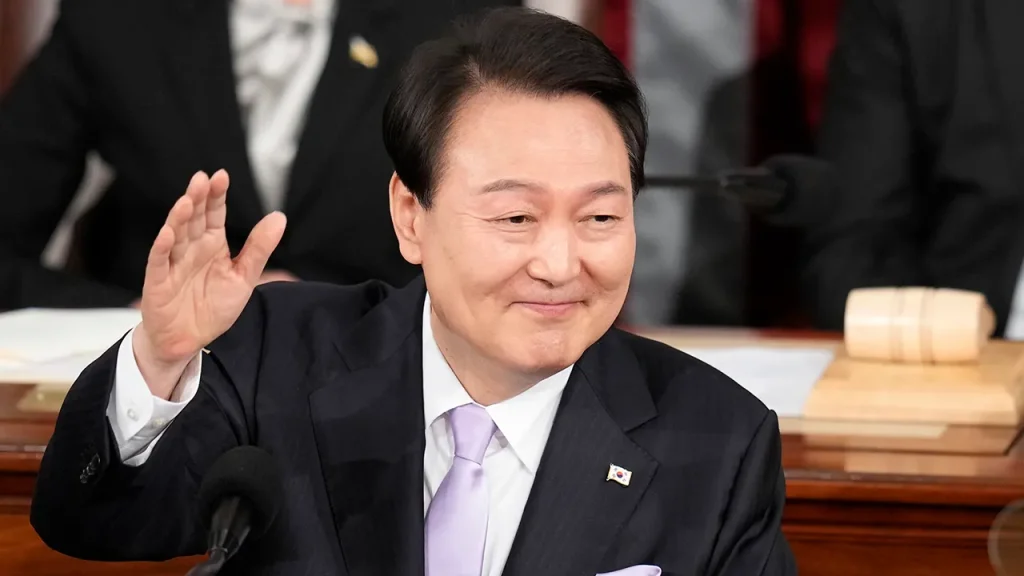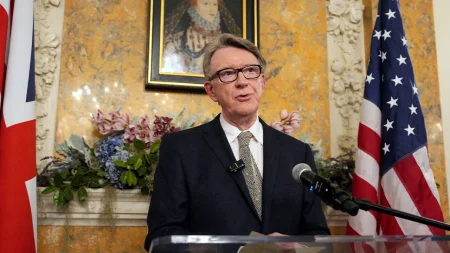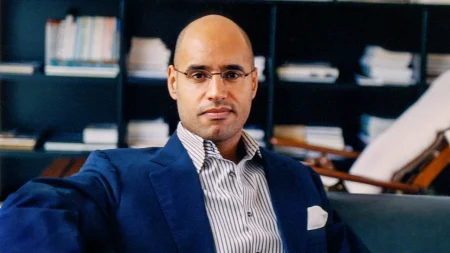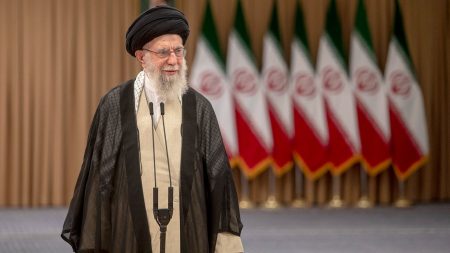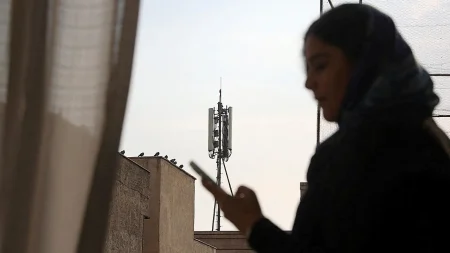The political landscape of South Korea has been dramatically reshaped by the unprecedented issuance of an arrest warrant for incumbent President Yoon Suk Yeol. This extraordinary development follows Yoon’s controversial decision to impose martial law on December 3rd, a move that swiftly triggered impeachment proceedings and his subsequent suspension from power. The arrest warrant, approved by the Seoul Western District Court and confirmed by the Corruption Investigation Office for High-ranking Officials, marks a watershed moment in South Korean history, representing the first time a sitting president has faced such legal action. The charges against Yoon center on allegations of insurrection, stemming from his brief but impactful implementation of martial law. While the specific details of the accusations remain undisclosed, the court’s decision to issue the warrant suggests the presence of substantial evidence warranting further investigation.
The unfolding events surrounding President Yoon’s impeachment and arrest warrant coincide with another national tragedy, the recent deadly plane crash that claimed the lives of 179 people. This devastating incident, still under investigation with assistance from US investigators, has compounded the nation’s challenges and added a layer of complexity to an already tumultuous period. The confluence of these two crises—the political upheaval surrounding the president and the aftermath of the plane crash—has created a period of profound uncertainty and national introspection. While the government grapples with the immediate aftermath of the air disaster, the political future of the country hangs precariously in the balance, awaiting the outcome of the legal proceedings against President Yoon.
The decision to impose martial law, the catalyst for the current crisis, remains shrouded in controversy. While the precise motivations behind Yoon’s actions are yet to be fully elucidated through the ongoing investigation, the immediacy and severity of the response—impeachment, suspension, and an arrest warrant—reflect the gravity of the situation. The imposition of martial law, a drastic measure typically reserved for times of extreme national emergency, appears to have been perceived as a significant overreach of presidential power, prompting swift and decisive action from the National Assembly and the judiciary. The rapid unfolding of these events has left the nation grappling with the implications of such a dramatic shift in power and the potential ramifications for the future of South Korean democracy.
The allegations of insurrection against President Yoon raise profound questions about the stability of the government and the rule of law. Insurrection, by its very nature, implies an attempt to overthrow or undermine the existing political order. The investigation into these charges will undoubtedly delve into the motivations and intentions behind Yoon’s actions, seeking to determine whether his imposition of martial law constituted an unlawful seizure of power. The outcome of this investigation will have far-reaching consequences, not only for President Yoon’s political career but also for the broader political landscape of South Korea. The very foundation of democratic governance is being tested, as the nation confronts the unprecedented scenario of a sitting president accused of attempting to subvert the constitutional order.
The issuance of the arrest warrant signifies a crucial step in the legal process, indicating that the court has found sufficient probable cause to believe that President Yoon committed the alleged crimes. This judicial decision carries significant weight, underscoring the seriousness of the accusations and the commitment to upholding the rule of law, regardless of political stature. The impending trial will be a pivotal moment in South Korean history, providing a public forum for the evidence to be presented and scrutinized. The proceedings will not only determine the fate of President Yoon but will also serve as a critical test of the strength and resilience of South Korea’s democratic institutions.
As the legal proceedings unfold, the nation remains on edge, grappling with the combined weight of political uncertainty and national tragedy. The plane crash, a stark reminder of the fragility of life, has further complicated an already challenging situation. The convergence of these two crises presents a formidable test for the South Korean people, demanding resilience, unity, and a steadfast commitment to democratic principles. The world watches closely as South Korea navigates this turbulent period, hoping for a just resolution that upholds the rule of law and reinforces the foundations of its democratic system. The outcome of the trial will undoubtedly shape the future trajectory of the nation, influencing not only its domestic politics but also its standing on the international stage.





